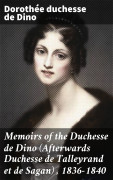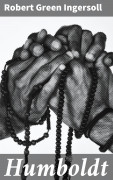Silvanus P. Thompson: William Gilbert, and Terrestial Magnetism in the Time of Queen Elizabeth
A Discourse

| Produkttyp: | eBook-Download |
|---|---|
| Verlag: | Good Press |
| Erschienen: | |
| Sprache: | Englisch |
| Seiten: | 11 (Druckfassung) |
| Format: | EPUB
Info▼
|
| Download: | 636 kB |
In 'William Gilbert, and Terrestrial Magnetism in the Time of Queen Elizabeth', Silvanus P. Thompson meticulously examines the groundbreaking work of William Gilbert, a prominent figure in the field of terrestrial magnetism during the reign of Queen Elizabeth I. Thompson explores Gilbert's revolutionary ideas on magnetism and his contributions to the field, offering a comprehensive analysis of the historical and scientific context in which Gilbert operated. Thompson's writing is scholarly and detailed, providing readers with a deeper understanding of Gilbert's significance through a literary lens. The book is a valuable resource for those interested in the history of science and the development of magnetic theory.Silvanus P. Thompson, a renowned physicist and author, delves into the life and work of William Gilbert, shedding light on a lesser-known aspect of scientific history. Thompson's expertise in the field of physics lends credibility to his analysis of Gilbert's pioneering research, making the book a must-read for scholars and enthusiasts alike. His thorough research and insightful interpretations make 'William Gilbert, and Terrestrial Magnetism in the Time of Queen Elizabeth' a seminal work in the study of scientific innovation during the Elizabethan era.I highly recommend 'William Gilbert, and Terrestrial Magnetism in the Time of Queen Elizabeth' to anyone interested in the history of science and the exploration of magnetic phenomena. Silvanus P. Thompson's meticulous examination of William Gilbert's work provides a fascinating glimpse into the advancements made in the field of terrestrial magnetism during the 16th century, offering readers a valuable perspective on the evolution of scientific thought.











